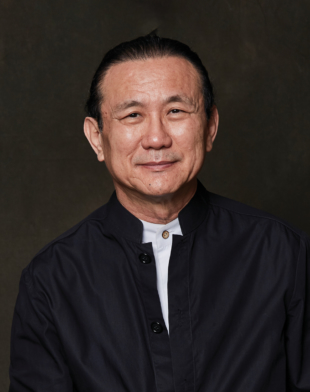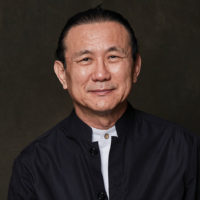As Amata celebrates 50 years of the leadership of founder and Chairman Vikrom Kromadit this year, the company reflects on a journey of growth, innovation and sustainability that has transformed Thailand’s industrial landscape and seen Amata grow from a small entrepreneurial venture into one of Southeast Asia’s leading industrial estate developers.

The company built on the success of Kromadit’s 1988 development of Bangpakong Industrial Park, one of the earliest industrial estates in Thailand. This marked the beginning of Amata’s long-term commitment to responsible and future-oriented industrial development. “After that park was sold out, I established Bangpakong Industrial Park 2 in 1989, now known as Amata City Chonburi,” Kromadit said.
The company’s reach soon expanded beyond Thailand’s borders, marking a significant turning point in Amata’s trajectory.
In 1994, Amata ventured into Vietnam with its first industrial park. By the end of 2024, Amata had managed to develop over 150 square kilometers of industrial parks across Thailand, Vietnam, Laos and Myanmar. “We deeply value the strong partnerships that support us. Amata wasn’t built overnight — it was built through hard work, sacrifice and, above all, trust from people who believed in this journey,” Kromadit shared.
Amata’s impact on the region is reflected in the presence of over 1,600 factory branches and commercial outlets within its parks, as many companies operate multiple facilities. But these industrial hubs are not just about business; they are also about creating communities.
“At Amata, our objective is to build the most perfect possible cities ensuring sustainability through careful urban planning, state-of-the-art utilities and dedicated management,” Kromadit said.
A key element of Amata’s success lies in its commitment to the “all win” philosophy, which focuses on ensuring sustainable, ethical growth.
“‘All win’ means all sides in the Amata equation are successful, including the environment. It emphasizes ethical practices, efficient resource use and a respectful balance with nature,” Kromadit explained. This approach aligns with Amata’s long-term vision of building smart cities that balance economic growth, environmental stewardship and social responsibility.
Today, Amata is taking steps toward greater green energy adoption, with solar power gradually contributing to its energy mix. The company is also advancing plans for an eco-industrial park in Laos strategically situated near the Lao-China Railway to support agricultural industries and light manufacturing while strengthening regional connectivity.
Looking ahead, Amata’s commitment to smart and future-ready urban development remains as strong as ever.
“The next 50 years won’t just be about expansion. They’ll be about creating sustainable living environments and ethical business practices that leave a lasting, positive impact on people and the planet, building a legacy that endures,” Kromadit said.
As Amata continues to innovate and lead in industrial development, it remains unwavering in its dedication to long-term value creation for communities across Southeast Asia.
Read the full interview with Kromadit at: sms-bridges.com/TH25-Amata
Learn more about Amata here: www.amata.com





